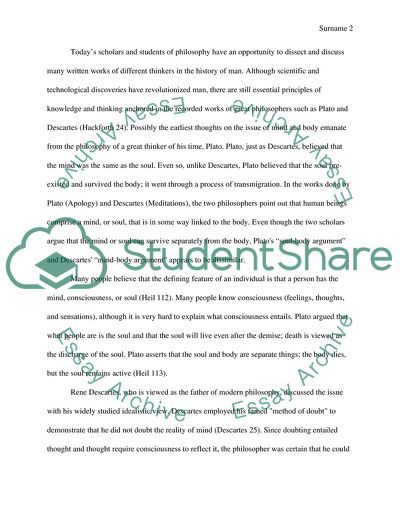Cite this document
(The Issue of Mind and Soul as Discussed by Plato and Descartes Essay Example | Topics and Well Written Essays - 1250 words, n.d.)
The Issue of Mind and Soul as Discussed by Plato and Descartes Essay Example | Topics and Well Written Essays - 1250 words. https://studentshare.org/philosophy/1859838-soul
The Issue of Mind and Soul as Discussed by Plato and Descartes Essay Example | Topics and Well Written Essays - 1250 words. https://studentshare.org/philosophy/1859838-soul
(The Issue of Mind and Soul As Discussed by Plato and Descartes Essay Example | Topics and Well Written Essays - 1250 Words)
The Issue of Mind and Soul As Discussed by Plato and Descartes Essay Example | Topics and Well Written Essays - 1250 Words. https://studentshare.org/philosophy/1859838-soul.
The Issue of Mind and Soul As Discussed by Plato and Descartes Essay Example | Topics and Well Written Essays - 1250 Words. https://studentshare.org/philosophy/1859838-soul.
“The Issue of Mind and Soul As Discussed by Plato and Descartes Essay Example | Topics and Well Written Essays - 1250 Words”. https://studentshare.org/philosophy/1859838-soul.


